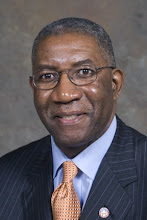There is a troublesome and troubling silence within the religious community concerning the current U.S. healthcare insurance reform debate. People of all faiths, backgrounds, political beliefs, and education levels are challenged daily to obtain and keep affordable health insurance. Reports about health insurance industry abuses—such as "rescission" where insurers terminate coverage and refund premium payments to customers who are diagnosed with chronic or life-threatening illnesses covered by their policies—are well known to everyone, including religious leaders. However, religious leaders and groups have stood silently on the sidelines.
As a Christian minister, I find this situation troublesome. The Bible is full of lessons about healing, health, and compassion for wounded and diseased people. Jesus Christ made healing an integral feature of his ministry. One would think that Christian pastors would be active thought and action leaders concerning the health insurance reform debate. What could possibly be harmful about teaching and leading our congregants and the wider public about this issue?
Because healing is integral to the redemptive ministry of Jesus Christ, it is also troubling if Christian ministers will not recognize the obvious moral implications surrounding the current healthcare insurance system and the need to reform it. It is troubling that religious leaders of all faiths and creeds are not actively determined to make health care affordable and available to every person in this society. The people who should be providing moral leadership concerning this life and death issue are conspicuously shirking our responsibility.
I urge the congregation I serve to be engaged in the healthcare reform debate, and openly favor a publicly-financed program to cover any person who cannot afford insurance in the private market or who may prefer coverage under the public program. Private insurers are interested in charging whatever people will pay while providing as little insurance coverage as possible. The private insurance industry hopes the current healthcare reform movement will require Americans to obtain health insurance and produce millions of new customers. Without a public option, all Americans, and especially the most vulnerable, will be at the mercy of the industry's pricing and delivery practices.
The public financing option for healthcare insurance reform is a moral and civil rights issue. A fair society does not force people who become ill and wounded to depend on the avarice and greed of the market place for their care. Religious leaders should demand that President Obama and Congress include a strong public option as part of healthcare insurance reform. After all, we are constantly confronted with the realities and injustices associated with the existing system.
In this regard, I am struck by what Walter Rauschenbusch, regarded as the father of the Social Gospel movement within 20th Century Christian thought, wrote in his landmark work titled Christianity and the Social Crisis, published in 1907.
"Few churches have the resources and leadership to undertake institutional work on a large scale, but … all pastors who are at all willing to do it have institutional work thrust on them. They have to care for the poor… This is the stake of the churches in modern poverty. They are buried at times under a stream of human wreckage… They have a right, therefore, to inquire who is unloading this burden of poverty and suffering upon them by underpaying, exhausting, and maiming the people. The Good Samaritan did not go after the robbers with a shotgun, but looked after the wounded and helpless man by the wayside. But if hundreds of Good Samaritans traveling the same road should find thousands of bruised men groaning to them, they would not be such very Good Samaritans if they did not organize a vigilance committee to stop the manufacturing of wounded men. If they did not, presumably the asses who had to lug the wounded to the tavern would have the wisdom to inquire into the causes of their extra work."
My congregation holds me accountable for what I say and do concerning the moral implications of public policy issues. More importantly, God holds us accountable for what we do—and for what we fail to do—to provide fair and adequate healthcare for every person in our society, including people who cannot afford it. This is a fundamental issue of social justice. Shame on religious leaders and congregations if we avert our eyes and pass to the other side of the healthcare insurance Jericho Road while millions of bruised and robbed people suffer.
Monday, October 12, 2009
Subscribe to:
Post Comments (Atom)

2 comments:
Amen!
In the richest and most religious country in the world, why is greed rewarded above everything? The lives and welfare of human beings means so little, and the voices of the distressed and needy are hushed and co-opted for the benefit of the powerful.
I just watched a Bill Moyers segment that talks about the way the financial world has abused and misused their power. Please watch it. The greed of the insurance industry is reflected here too.
http://www.pbs.org/moyers/journal/10092009/watch.html
Post a Comment